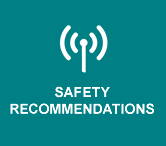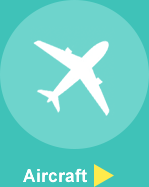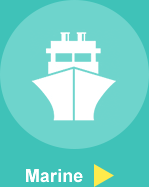Aiming for the further development of the Japan Transport Safety Board

The Japan Transport Safety Board (JTSB) celebrated its 15th anniversary on October 1, 2023. Investigating the causes of accidents and incidents across three modes of transport (aircraft, railway, and marine), and recommending measures and actions to prevent recurrence and to mitigate damage have made us appreciate our important role in preserving transportation safety from a fair and neutral standpoint, and we will continue our efforts for further development.
While facing the Covid-19 pandemic, the JTSB has been building a system based on the recognition that it is necessary to prepare for major accidents that have not occurred in recent years, and we were able to apply this system to the investigation of the sinking of the passenger ship KAZU I, which occurred on April 23, 2022, and to the final investigation report, which was issued on September 7, 2023. Although the Marine Committee was the main authority of the investigation, all members of the Aircraft Committee and the Railway Committee participated in the investigation, conducted multiple analyses, and exercised scrutiny while utilizing their varied experience.
At first, the investigation of this accident was extremely difficult, since the JTSB could not investigate the hull. However, the JTSB worked hard to conduct as thorough a preliminary investigation as possible, and we were able to obtain information on the location of the passenger ship in operation by obtaining data from the families of the passengers, including the ship’s location information (GPS) on the day of the accident and photos that were supposedly taken by the passengers on board. This information, together with the results of marine and meteorological simulations, made it possible to estimate the condition of the passenger ship scientifically and quantitatively. The Committee members and investigators were able to share a common understanding that there was no damage to the outer hull that might be a flooding route, that the situation of the destroyed hatches was known, that there was an opening in the bulkhead dividing the compartment below the upper deck, and that the cause of the engine stoppage could be estimated. This was a major factor in the efficient investigation of the passenger ship. Another significant achievement was the quantification of hull dimensions and shape through the full utilization of recently introduced 3-D laser scanners (fixed and handheld types). This data led to subsequent scientific and quantitative analyses of the hatch opening and closing, seawater inflow through the hatches, and a simulation of the passenger ship’s hull tilt.
The above investigation and analysis of the tangible elements, such as equipment, that were involved in the accident were subsequently corroborated by statements with many parties involved, and a progress report (issued on December 15, 2022) described mainly the tangible elements of the accident. Based on the investigation and quantitative analysis of these tangible elements, we can now adequately examine the intangible elements, such as human factors, of the accident. The intangible elements of the investigation required considered descriptions because of the many aspects related to people and organizations, but we were able to issue the final investigation report after discussion and deliberation. We went one step further than previous reports and included a section at the end entitled “Safety Actions Expected in the Future”, which gives recommendations for immediate action, and a section entitled “Toward Fostering Safety Awareness in Local Communities”, which points out the need to ensure safety in the community and in tourism on a continuous basis. Although there is room for debate as to how far the JTSB should go in making recommendations, we believe that it will continue to be necessary to make recommendations that only us, with our guaranteed independence, can make.
Now, the entire JTSB, which celebrated its 10th anniversary in October 2018, has been working on the “Duty improvement Action Plan” from the viewpoint of sincerely accepting and responding to your expectations and requests and from the viewpoint of further promoting the assurance of traffic and transportation safety. We have set three targets: “Strengthening analytical ability”, “Strengthening information provision”, and “Strengthening global competitive ability”. To achieve these, we have added the perspective of “Strengthening organizational and individual abilities”, set higher quality targets than ever, and promoted new operational improvement initiatives. These four initiatives were utilized in the investigation of the foundering of the passenger ship KAZU I, but we also felt the need to continue promoting them.
In the past few years, we have continuously recruited highly motivated new administrative and technical officials, and we will continue to develop the human resources of these new officials as well as provide domestic and international training for investigators and administrative officials to continuously improve their skills. In addition, we will also focus on the publication of the “JTSB Digest”, which summarizes trends and common factors of accidents based on statistics and data analyses of valuable survey results unique to the JTSB, as well as on awareness-raising activities on our website. In addition, we will promote the strengthening of our international capabilities to contribute to the investigation of accidents and incidents in global cooperation.
We appreciate your understanding and cooperation.
January 2024
TAKEDA Nobuo
Chairperson
Japan Transport Safety Board













